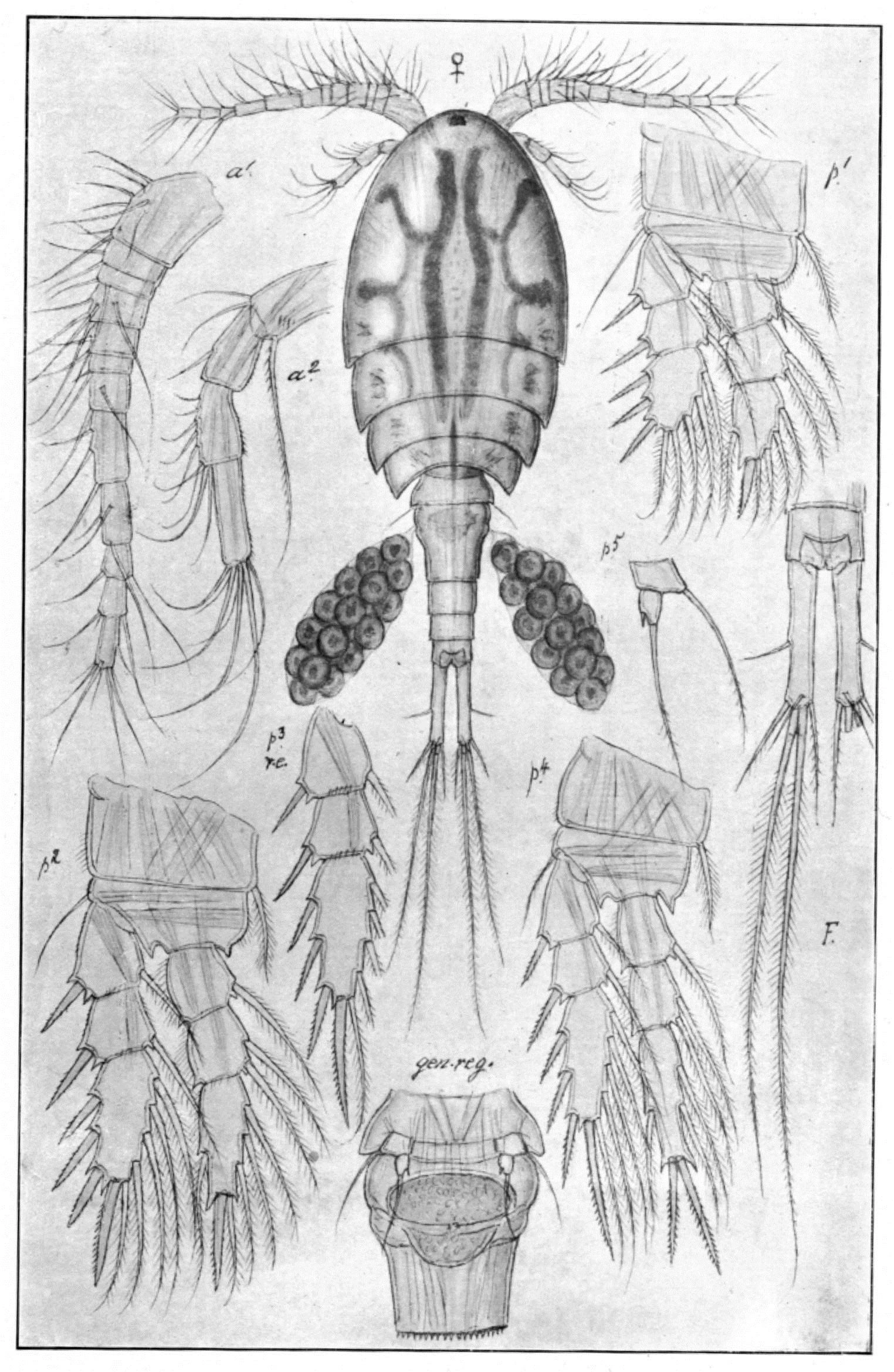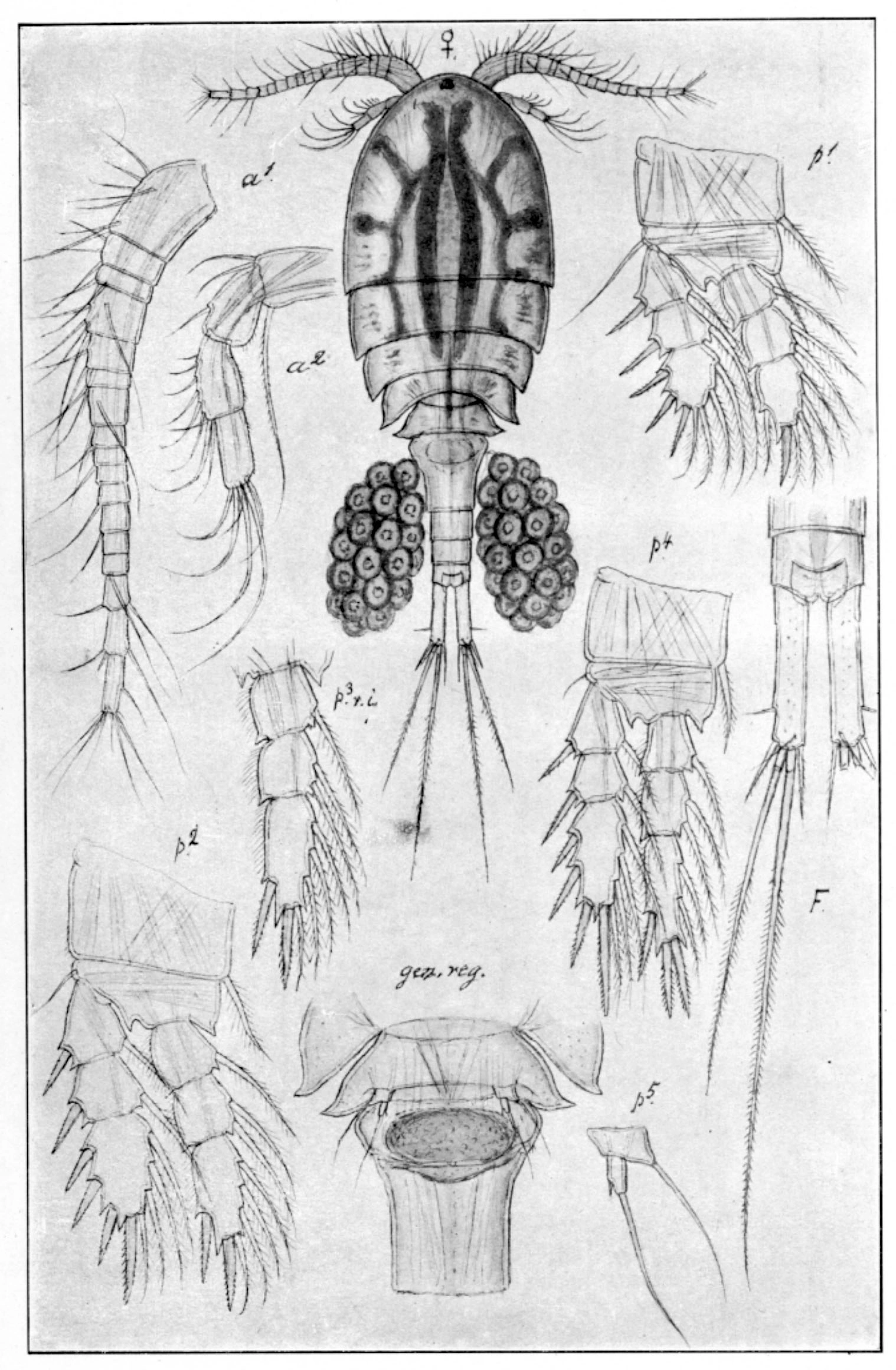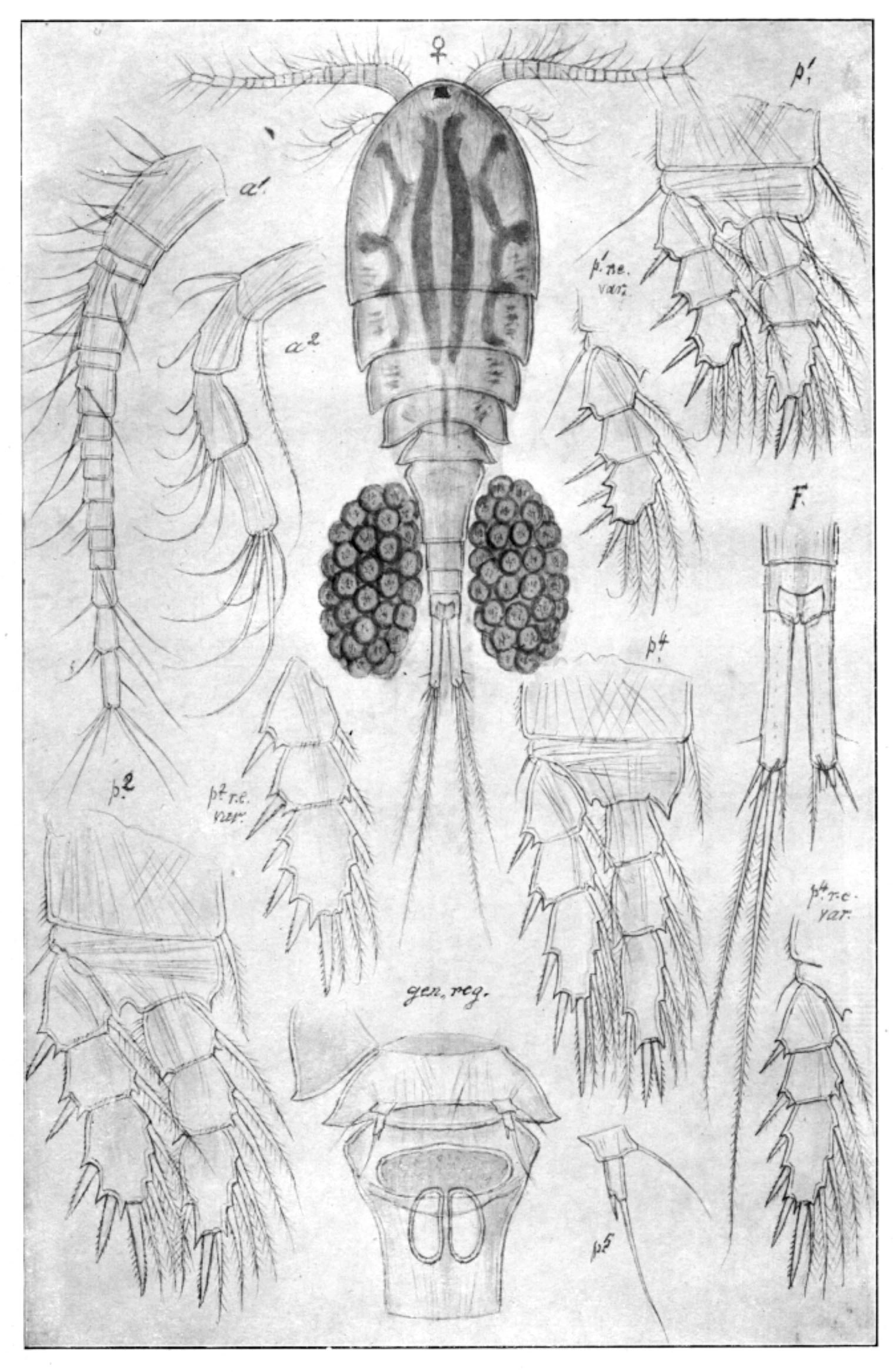Acanthocyclops capillatus
Acanthocyclops capillatus is relatively common in the subalpine zone in the south-eastern part of South Norway and in Finnmark county. It inhabits water bodies of all sizes and is an indicator of weakly acidic, electrolyte poor water.
Key characteristics
Acanthocyclops capillatus (female).
The anterior part in Acanthocyclops capillatus has an elliptic outline, while the posterior end is long and slender. Its furca is about 6–8 times as long as wide or approximately as long as the three last abdominal segments combined. The lateral seta of the furca is attached near the middle. The 1. pair of antennae are short, composed of 12 segments, reaching the first thorax segment. Its colour is light yellowish with a brown tinge.
Female: Length 1.8 mm
Male: Length 1.8 mm
Ecology and distribution
A. capillatus is a littoral copepod found in 9 % of the water bodies. It is primarily distributed in the south-eastern part of South Norway and in the central part of county Finnmark. While the species is rare below 100 m a.s.l. (0,7 %), it is one of the most common species in water bodies situated between 700 and 1000 m a.s.l. (28 %). A. capillatus inhabits water bodies of all sizes and is an indicator species of weakly acidic, electrolyte poor water. The majority of records are from acid water and with pH less than 6.0 and conductivity less than 2.0 mS/m.
| Vitenskapelig navn | < 4,5 | 4,5 - 4,9 | 5,0 - 5,4 | 5,5 - 5,9 | 6,0 - 6,4 | 6,5 - 7,0 | 7,0 - 7,4 | > 7,5 |
|---|---|---|---|---|---|---|---|---|
| 7 | 29,7 | 18,4 | 13,7 | 8,6 | 4,2 | 3,3 | 0 |
| Vitenskapelig navn | < 1,0 | 1,0 - 1,4 | 1,5 - 1,9 | 2,0 - 2,9 | 3,0 - 3,9 | 4,0 - 4,9 | 5,0 - 6,9 | 7,0 - 9,9 | > 10,0 |
|---|---|---|---|---|---|---|---|---|---|
| 18,9 | 20,7 | 15,6 | 8,4 | 7,3 | 1,9 | 1,2 | 1,9 | 3,1 |
| Vitenskapelig navn | < 0,01 | 0,01 - 0,09 | 0,1 - 0,9 | 1,0 - 9,9 | 10,0 - 99 | 100 - 999 | > 1000 |
|---|---|---|---|---|---|---|---|
| 4,9 | 5 | 12,3 | 10,2 | 7,6 | 7,9 | 17,4 |
| Vitenskapelig navn | < 100 | 100-299 | 300-499 | 500-699 | 700-999 | >1000 |
|---|---|---|---|---|---|---|
| 1,3 | 7,3 | 8,9 | 10,6 | 27,6 | 7,7 |
Look alikes
Acanthocyclops robustus and Acanthocyclops vernalis.


